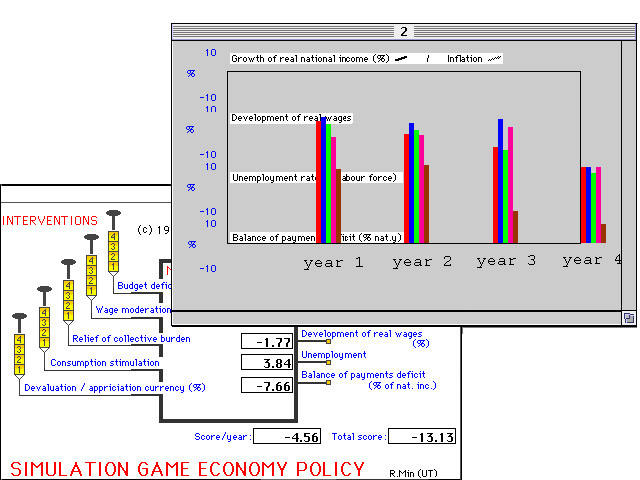Educational Design, Management & Media - Faculteit der Toegepaste Onderwijskunde - Educational Science & Technology
Vakgroep Educatieve Instrumentatietechnologie
Universiteit Twente

Tele-course
Technology and Simulation('T+S')
(197204) 2003/2004
'Computersimulatie als Leermiddel' ('CSaL').
Dit keuzevak 'CSaL' is vanaf 1983 t/m 2004 gegeven. Waarvan de laatste 5 jaar in het Engels als 'T+S'.
(based on the concept of parallelism and the PI theory for designing open web environments)
== to learn building your own learning enviroments with your own applet ==
(build in Java with the templates of the javaTHESIS system)
Rik Min
De sheets van de Master 2004:Sheets 3e college
Sheets 4e college
Sheets 5e college
Sheets 6e college
Sheets 7e college
Student results and
student papers 2002
of 2003/2004
Student results and
student papers 2003
of 2002/2003
Student results of 2001/2002
Student results of 2000/2001
Student results of 1999/2000
Student results of 1998/1999
and Student results of 1997/1998.

Here you see a simulator about the Dutch economy with 'two parallel windows'. The user can learn how an small open economy runs. The instuctions, the exercises, the tasks and the manuals are somewhere else in the e-learning environment.
 partly in Dutch
partly in Dutch